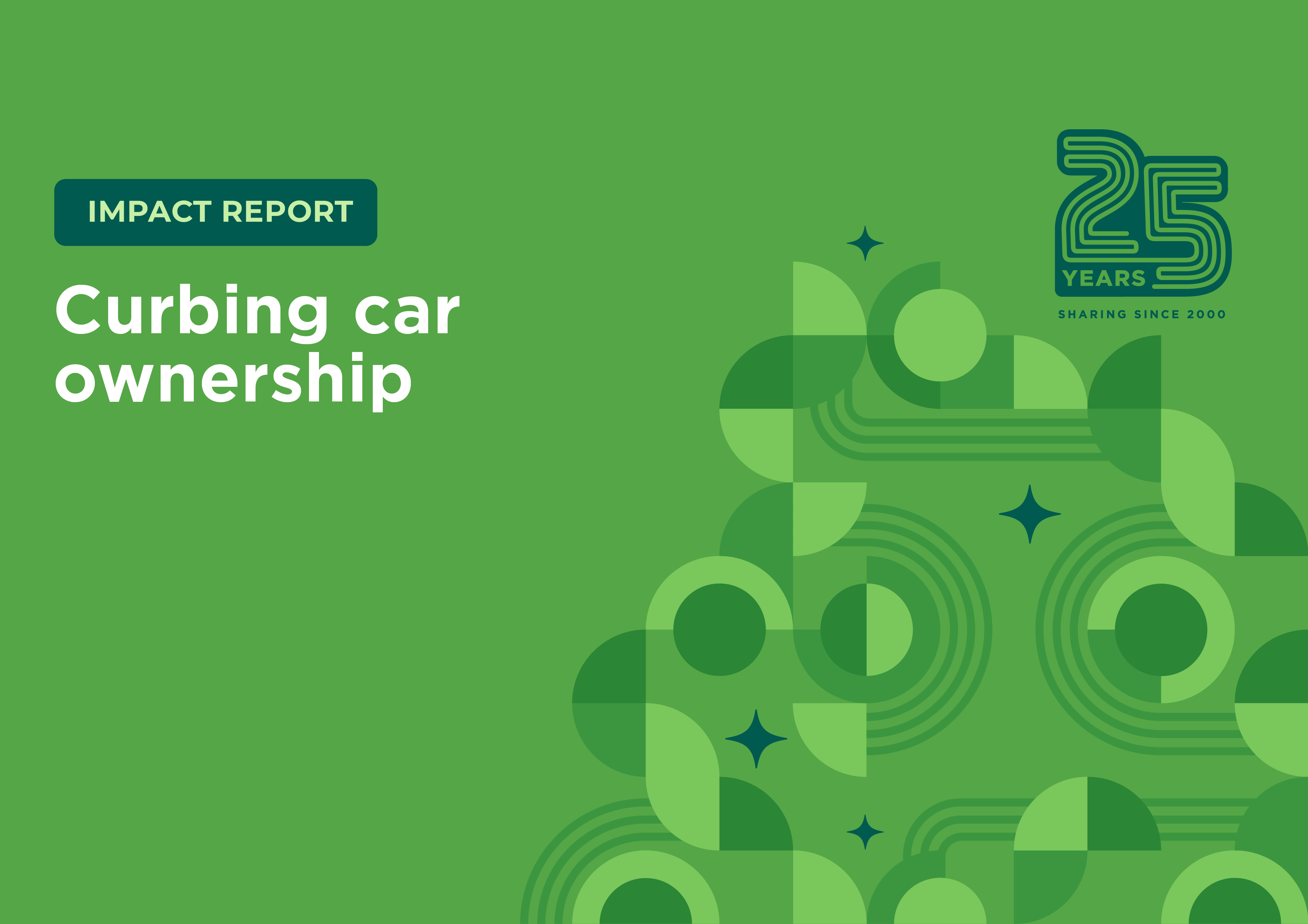25 years of car sharing and going multimodal
In 2000, Zipcar introduced car sharing to the US, creating a lasting positive social and environmental impact from New York City to Los Angeles. For the last 25 years, our members and partners have reported1 that car sharing has improved their lives and their communities.
As Zipcars rolled into cities, the world realized car sharing was more than just a convenient way to get around—it also promoted equitable, sustainable urban living2 and encouraged multimodality. Drivers traded in their keys (and the cost and hassle of owning a car) for the freedom of car sharing and embraced other flexible, sustainable options—like walking, biking, and public transit. Fewer cars on the road meant that cities became less congested, less polluted, and more livable.
At Zipcar, we’re proud to help reimagine the future of urban mobility. And the data from our North American Transportation Survey backs it up—our members are helping drive real change with us.
Here are all the ways Zipcar is transforming transportation
Curbing car ownership
By giving members an easy, convenient alternative to car ownership, Zipcar has reduced the number of personally owned cars on the streets.
In fact, Zipcar members own nearly 80% fewer vehicles than the average U.S. household.
Zipcar helps keep cars off the road
83% of Zipcar members don’t own a car.
75% of member households don’t own a car.
1 Zipcar takes up to 13 personally owned cars off the street.3 [Journal of the Transportation Research Board]
60%–76% fewer vehicles in cities like New York, Boston, Chicago, Washington, DC, and San Francisco, Zipcar members own 60–76% fewer cars than average households.
Members rethink car ownership after joining
27% of members ditched their cars within a year of joining Zipcar.
49% postponed buying or leasing a vehicle.
Without Zipcar, members would buy more cars
50% of single-car households and 50% of multi-car households would purchase an additional vehicle if they couldn’t access Zipcar.
Promoting multimodal transportation
Zipcar doesn’t just reduce car ownership— research shows4 it encourages smarter ways to travel short distances by walking, biking, and using public transit. While most car trips in the US are under 6 miles5, Zipcar members typically rely on car sharing for longer, more purposeful trips—like running errands or visiting family—where other transportation options can’t reach.
Car sharing promotes walking
82% of members walk to pick up their Zipcar.
12% report walking more since joining.
Members count on public transit
63% of members frequently use public transportation.
Nearly half of members ride transit more than five times per week.
Zipcar gives members better access
83% of members say Zipcar allows them to reach places inaccessible by public transportation
50% of members say they use Zipcar to supplement public transportation
Members take longer, more purposeful trips
67 miles and 10 hours is the average Zipcar trip.
Here’s where Zipcar members take their trips:
-
49%
Errands (not including food shopping)
-
47%
Grocery store
-
41%
Out-of-town trips
-
39%
Visiting family and friends
-
36%
Appointments
80% of members report having convenient access to Zipcars.
Happier urbanites, greener cities
Car sharing helps reduce traffic, parking hassles, and carbon emissions. So, cities can reclaim and create space for people, not cars.
Our members love car sharing
78% say Zipcar access is essential for their overall transportation satisfaction.
80% of car-free members say Zipcar access is critical to maintaining their lifestyle.
Cleaning up congested cities
200,000+ new vehicles would have been bought in 2024 if members no longer had access to Zipcar.
Zipcar-specific data was collected as part of Zipcar’s 2024 North American Transportation Survey, with a sample size of approximately 5,922 respondents in North America.
1 Zipcar-specific data was collected as part of Zipcar’s 2024 North American Transportation Survey, a survey with a sample size of approximately 5,922 respondents in North America.
2 Martin, Shaheen and Lidicker 2010
3 Martin, Shaheen and Lidicker 2010
4 Urban Land.
5 Oak Ridge National Laboratory, 2022 National Household Travel Survey




